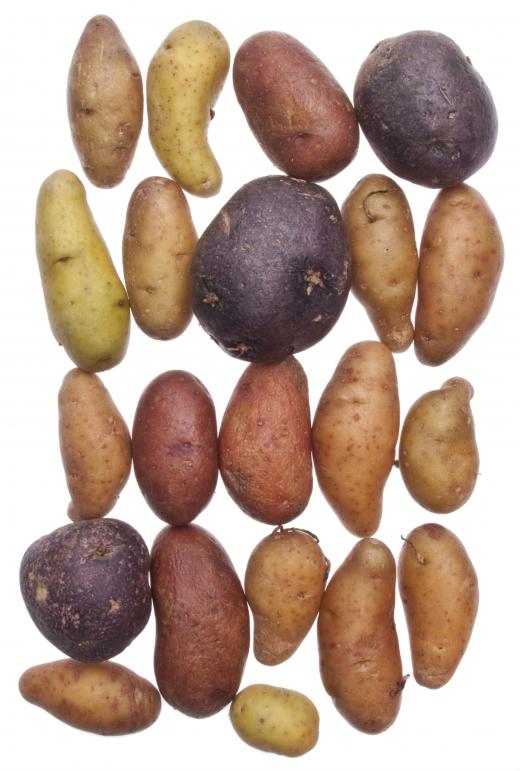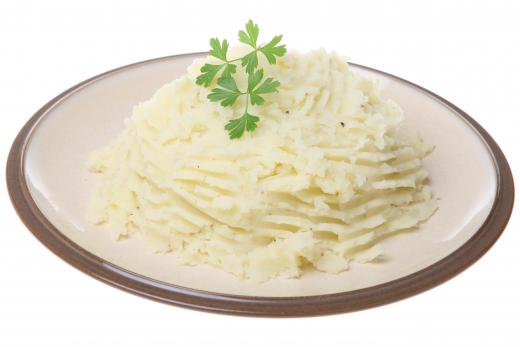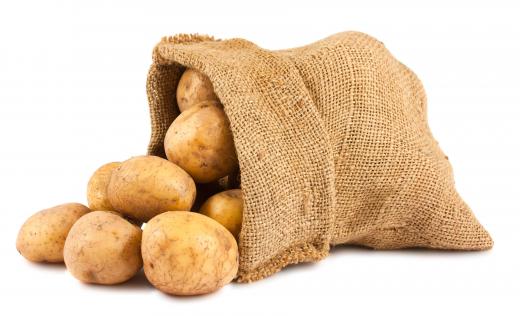A potato crop is a commercial food crop grown for sale in raw or processed food products. Farmers growing potatoes can sell them directly or through a broker, or may produce them on contract for a food manufacturer or restaurant chain. Prices can vary from year to year, depending on availability, consumer demand, and other market conditions. Other crops in addition to potatoes may be produced to diversify the options, and some farms produce a range of potato varieties.
These tubers are native to South America, where they have been cultivated for thousands of years and cultured into a number of different varieties. Broadly, they are divided into starchy and waxy types, which can be useful for making different kinds of foods like baked, fried, and mashed potatoes. In the selection of a good varietal for a potato crop, the farmer needs to think about demand, ease of growth, and past performance on the farm.

Raw potatoes can be sold in bulk for distribution to supermarkets, restaurants, and other facilities which will process them. In other cases, the potato crop can be slated for processing to make products like chips, frozen potato products that can be fried or baked, potato starch, and related processed food ingredients. Farmers grow their crop vegetatively, using starts from seed potatoes known to perform well and produce crops of uniform size and quality.

The conditions on a potato farm include sandy to loamy soil and cool growing conditions. Farms with extreme heat or wet soil are not suitable for a potato crop. Tubers are typically planted after the last chance of frost is over and allowed to grow into the harvest season, when mechanical combines can streamline the process of digging up the tubers and getting them ready for sale. After harvest, the field can be treated and dressed to prepare it for the next year.

Like other commercial food crops, the potato crop can be vulnerable to infections with mold and microorganisms in addition to rodent infestations and other issues. These can wipe out all or part of a crop and lead to substantial losses, one reason the farmer may choose to hold agricultural insurance. Natural methods of pest control can include companion planting to control pests or encouraging birds of prey to feed on rodents. It’s also possible to spray and treat crops to address these issues, in which case they will not qualify for organic certification, a concern for some farmers.
Ever since she began contributing to the site several years ago, Mary has embraced the exciting challenge of being a About Mechanics researcher and writer. Mary has a liberal arts degree from Goddard College and spends her free time reading, cooking, and exploring the great outdoors.

